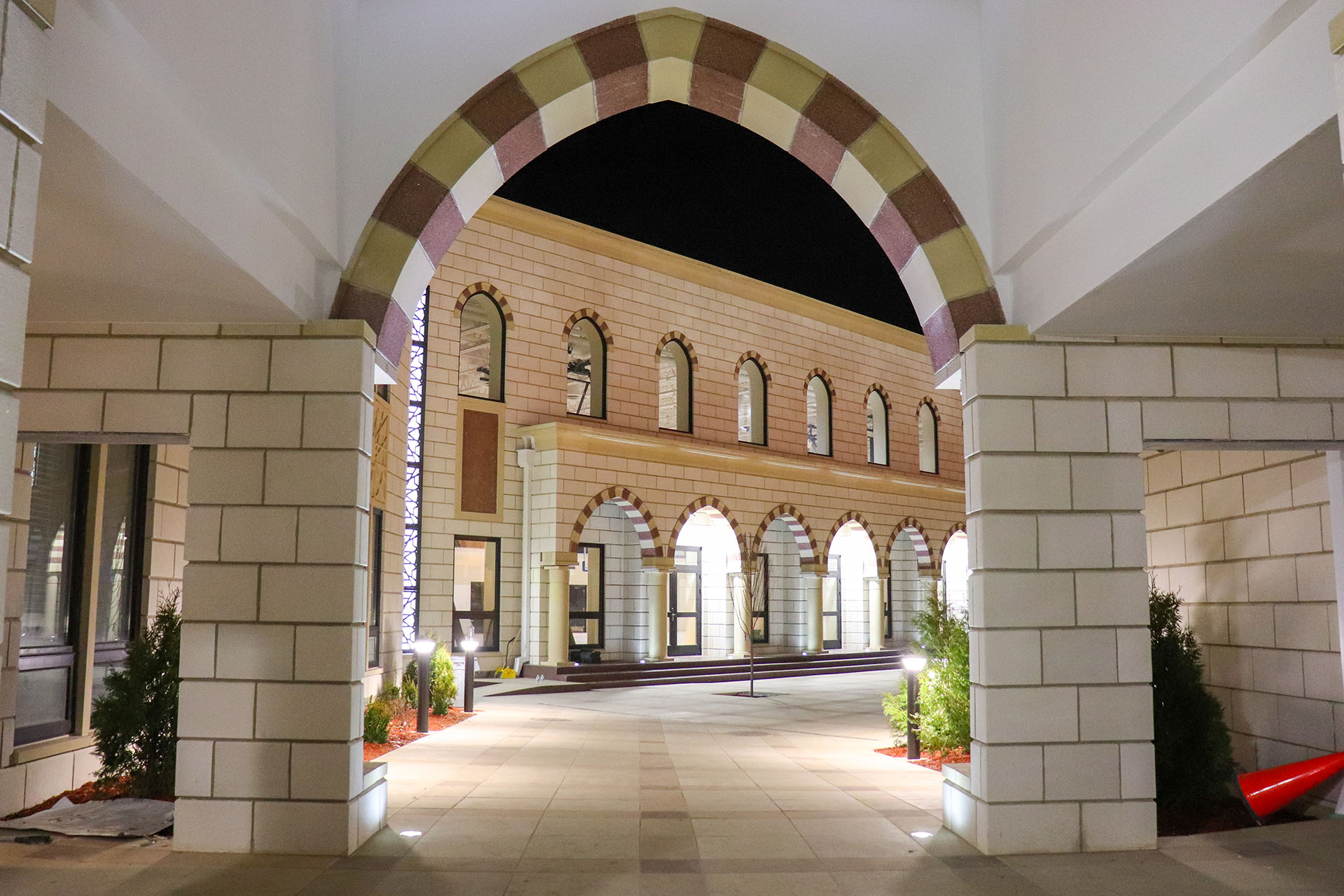Mufti Muhammad Taha Karaan (RA) on Stoning the Jamarat, the Second Adhan on Friday, and the Sunnahs Before the Friday Prayer

بسم الله الرحمن الرحيم
Question
As Salamu alaykum. I went for hajj with many people who follow who the Shafi’ Fiqh. In Muzdalifah they (strong males) left Muzdalifah after midnight and stoned the Shaitaan before fajr. Some people even had intention to leave Mina right after stoning and perform the Eid prayer at the Haram Sharif. Does this practice have basis in the Shaf’i Fiqh. If so can you present the evidence from the great Shaf’i scholars such as Imam Nawawi (rah) and Hafiz Ibn Hajar (rah) and other great Shaf’i scholars of the past. JazakAllah
Mufti Taha’s Answer
Wa alaykumu s-salam wa rahmatuLlah
The Shafi’i madhhab permits stoning of jamrat al-‘Aqabah after the middle of the night. The license to do so is general and does not exclude able-bodied males. However, this is a dispensation; pelting after Fajr on the 10th remains the better option by far. Able bodied males who choose this dispensation are not guilty of a sin or of abandoning an indispensable integral of the hajj. They do, however, deprive themselves of greater rewards.
There is no basis for the practice of leaving Mina to attend Eid prayers in the Haram.
The following citation from Imam Nawawi’s Majmu’ might be useful, in sha Allah.
قال النووي في شرح المهذب 8/177:
مذهبنا جواز رمي جمرة العقبة بعد نصف ليلة النحر، والأفضل فعله بعد ارتفاع الشمس. وبه قال عطاء وأحمد، وهو مذهب أسماء بنت أبي بكر وابن أبي مليكة وعكرمة بن خالد. وقال مالك وأبو حنيفة وإسحاق: لا يجوز إلا بعد طلوع الشمس. واحتج لهم بحديث ابن عباس السابق أن النبي صلى الله عليه وسلم أمرهم أن لا يرموا إلا بعد طلوع الشمس، وهو حديث صحيح كما سبق. واحتج أصحابنا بحديث أم سلمة وغيره من الأحاديث الصحيحة السابقة في مسألة تعجيل دفع الضعفة من مزدلفة إلى منى. وأما حديث ابن عباس فمحمول على الأفضل جمعا بين الأدلة.
And Allah knows best.
Taha
Question
I have one more question. Is there any basis in the Shafi’ Fiqh for only one azaan for Jummah? Also, the two or four rakaats of sunnah before the khutbah. My understanding is that all four imams are in consensus on the practice of the sahabah for the second azaan and also for the sunnah prayer before the khutbah.
Mufti Taha’s Answer
To Imam Shafi’i the second adhan is not a permanent fixture, but a measure to be resorted to where a need exists similar to the need for which it was originally introduced by Sayyiduna Uthman radiyaLlahu ‘anhu. Where no such need exists, as for instance with a moderately sized community in which one adhan suffices to gather the congregation as it used to be in prophetic times, it would be better (though not mandatory), in Imam Shafi’i’s opinion, to go back to the original practice of one adhan.
Imam Shafi’i states in al-Umm vol. 1 p. 389:
عن السائب بن يزيد أن الأذان كان أوله للجمعة حين يجلس الإمام على المنبر على عهد رسول الله صلى الله عليه وسلم وأبي بكر وعمر. فلما كانت خلافة عثمان وكثر الناس أمر عثمان بأذان ثان، فأذن به، فثبت الأمر على ذالك… قال الشافعي: وأيهما كان فالأمر الذي كان على عهد رسول الله صلى الله عليه وسلم أحب إليَّ.
Question
I have one more question please. If there is only one azaan and it is given right at the beginning time, right after zawal then should the imam give time before beginning the khutbah to allow those who wish to pray the sunnah prayer to do so.
Mufti Taha’s Answer
As-salamu `alaykum
There exists a difference of opinion among the Shafi’i on whether Jumu’ah has a preceding sunnah ratibah or not. The carried view is that such a sunnah ratibah does exist, and it is fairly easy to see how it would fit in with a two-adhan situation. However, when there is only a single adhan, a tug-of-war commences between the hadith evidence on the one hand, and the logical extrapolation from the carried view of the madhhab on the other.
The hadith evidence indicates that RasuluLlah sallaLlahu `alayhi wasallam used to enter the masjid for Jumu’ah and seat himself on the minbar immediately upon the occurence of zawal, whereupon Bilal used to render the adhan, after which RasuluLlah sallaLlahu `alayhi wasallam commenced with the khutbah without any delay. Should one uphold the carried cview of a sunnah ratibah before Jumu’ah, on the other hand, it would imply that space should be made for this ratibah.
I must confess to not having found a direct answer to your question in the existing corpus of Shafi’i fiqh. Be that as it may, my own preference, for whatever it is worth, lies with the hadith evidence in this instance. I find myself more comfortable with the position of Ibn Hajar al-‘Asqalani and others who (in contrast to Imam Nawawi et al) regard the sunnah salah before Jumu’ah not as a ratibah, but as a case of nafl mutlaq. For one who takes this position the need to insist on the making of space for sunnah salah after the single adhan just does not arise at all. Ibn Hajar writes in Fath al-Bari under hadith no 937:
وأما قوله* “كان يطيل الصلاة قبل الجمعة“، فإن كان المراد بعد دخول الوقت فلا يصح أن يكون مرفوعا لأنه صلى الله عليه وسلم كان يخرج إذا زالت الشمس فيشتغل بالخطبة ثم بصلاة الجمعة. وإن كان المراد قبل دخول الوقت فذلك مطلق نافلة لا صلاة راتبة، فلا حجة فيه لسنة الجمعة التي قبلها، بل هو تنفل مطلق.
أي قول نافع إن ابن عمر كان يطيل، وهو عند أبي داود وابن حبان، لا البخاري*


